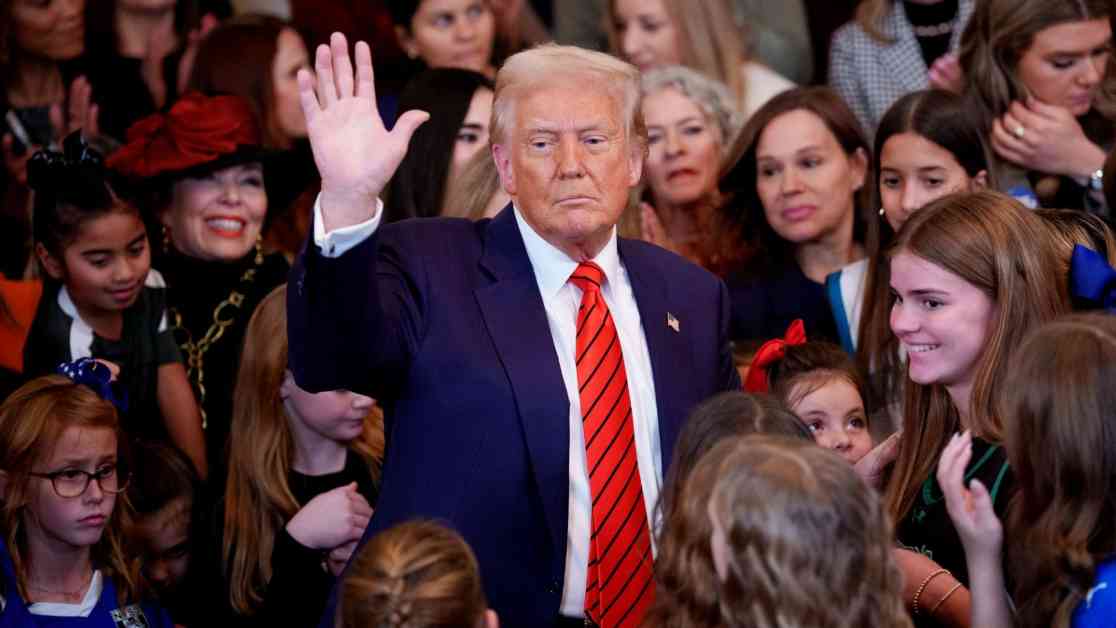Donald Trump, in a bold move, has signed an executive order that has sparked controversy and debate across the nation. This executive order bans transgender women from participating in female sports events, declaring that the “war is over.” The order allows US government agencies to withhold funding from schools that permit transgender athletes to compete on women’s teams, targeting high school, university, and grassroots sports. Trump made this announcement in the East Room at the White House, emphasized the importance of upholding women’s sports for women only, and vowed to investigate and potentially revoke federal funding from schools that do not comply with the order. This move is just one in a series of actions taken by Trump to restrict transgender rights, with the President also pledging to press the International Olympic Committee to adjust its rules concerning transgender athletes ahead of the 2028 Olympics in Los Angeles.
Trump’s Executive Order and Sports Regulations
In a ceremony surrounded by young girls, Trump signed the executive order, primarily targeting high school, university, and grassroots sports. This move is intended to protect the integrity of women’s sports and prevent men from participating in female sports teams or locker rooms, as Trump emphasized in his address. He urged schools to comply with Title IX regulations and warned that failure to do so could result in federal investigations and the potential loss of funding. The directive provides schools with guidance on how to handle transgender athletes and orders the Department of Education to enforce compliance with these regulations. This order marks a significant shift in the treatment of transgender individuals in sports, as the Trump administration aims to protect women’s sports from what they perceive as unfair competition.
Controversy and Global Impact
Trump’s decision to sign this executive order has drawn both support and criticism from various groups and individuals. While some view this as a necessary step to protect the integrity of women’s sports, others argue that it discriminates against transgender individuals and exposes them to further discrimination. Human Rights Campaign president Kelley Robinson expressed concern over the potential impact of this order on transgender youth, stating that it could lead to harassment and discrimination. The order also signals a broader shift in US government policy towards transgender rights, with Trump recently announcing that the military would no longer recognize transgender individuals and issuing restrictions on gender transition procedures for minors. This move has ignited a debate over transgender rights and equality, with implications that extend beyond sports and into various aspects of society.
The controversy surrounding transgender athletes in women’s sports recently came to a head during the Paris 2024 Olympics when Algerian boxer Imane Khelif won gold in the welterweight final. Khelif’s participation in the Games was marred by allegations of failing gender eligibility tests and speculation regarding her biological sex. Despite these challenges, Khelif maintained that she is a biological female and met all the necessary criteria to compete in the Olympics. The IOC ultimately cleared her to participate, emphasizing that she adhered to the established rules and regulations. This case highlights the complex nature of gender identity and the challenges faced by transgender athletes in competitive sports.
As Trump continues to push for changes in transgender rights and policies, the debate over transgender athletes in women’s sports is likely to intensify. The implications of this executive order extend far beyond the realm of sports, raising questions about gender identity, discrimination, and equality in society. The decision to ban transgender women from female events has sparked a national conversation about the rights of transgender individuals and the role of government in regulating gender-related issues. Whether this move will be met with widespread support or resistance remains to be seen, but its impact on transgender rights and equality is undeniable.





















